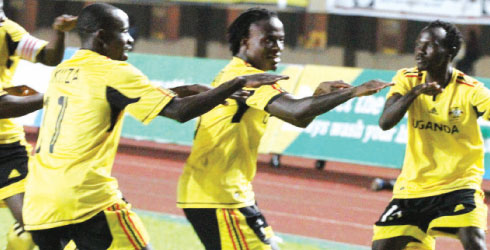×
The Standard e-Paper
Kenya’s Boldest Voice
 |
| Uganda Cranes players celebrate after beating South Sudan in a Cecafa Senior Challenge Cup in 2012 in South Sudan. [PHOTO: FILE / STANDARD] |
BY GISHINGA NJOROGE
KENYA: Kenyan footballers are not paid piles of cash. Indeed many of them and their sympathisers often claim that the players earn ‘peanuts’.